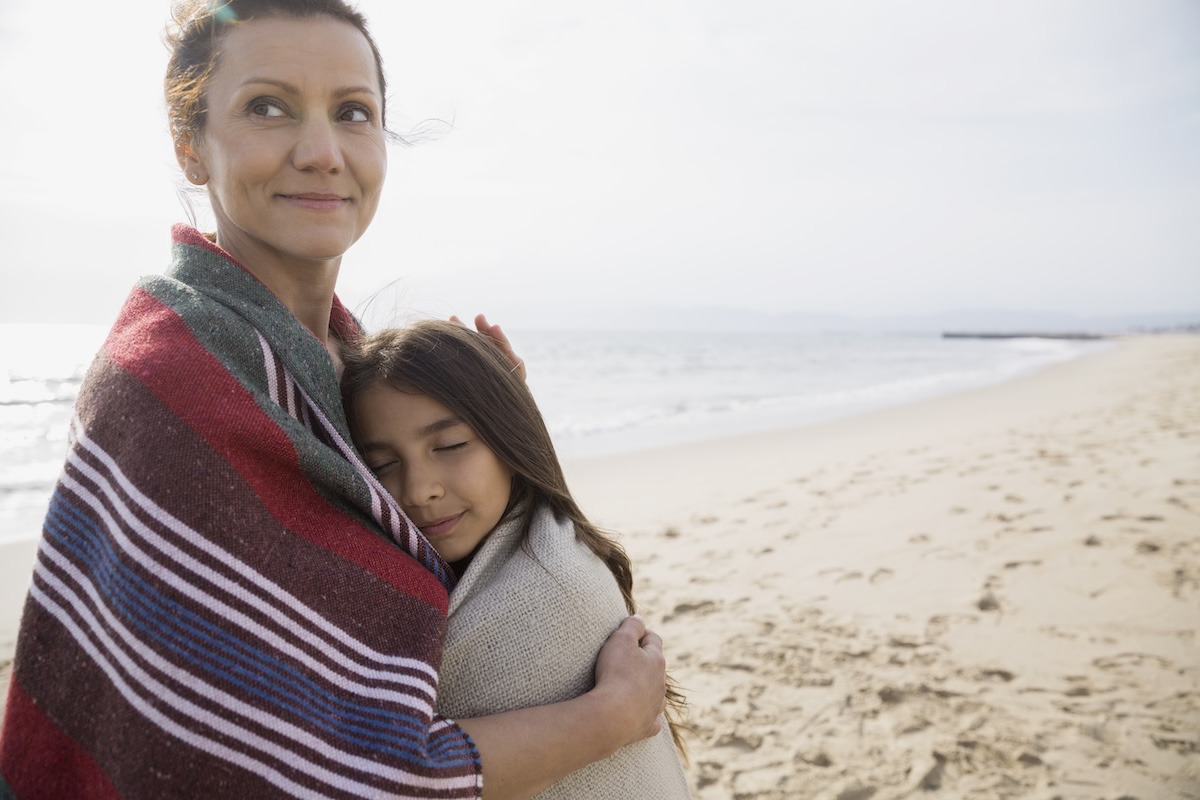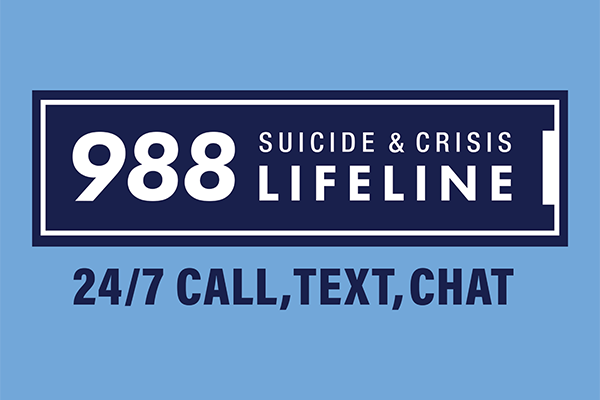Mental Health, Kid’s Health
Helping Children Cope After a Traumatic Event

Discover how to identify stress and help your family process it.
As a parent or caregiver, you would do anything to protect your child. But you can’t completely prevent exposure to traumatic events, such as an accident, the loss of a loved one, a crime or abuse. In fact, nearly half of all American children have an adverse childhood experience . These events can have a significant negative effect on children. Getting through the difficult period after a traumatic event is never easy, but you can help your child or teen cope, work through their feelings and thrive. Follow this guide for tips to move through challenging experiences with your family.
Recognize Signs of Traumatic Stress
Children’s brains are constantly developing — in fact, the brain isn’t fully developed until well beyond the teen years. This means that children and teens may respond differently to stress than adults do. Depending on your child’s age, you might see the following signs:
Toddlers and Preschoolers
- Separation anxiety
- Excessive crying or screaming
- Dietary changes, such as not eating or losing weight
- Frequent nightmares
Elementary Schoolers
- Anxiety or fear
- Guilt or shame
- Difficulty concentrating
- Trouble sleeping
Junior High and High Schoolers
- Depression and loneliness
- Eating disorders
- Self-harm
- Experimenting with drugs, alcohol or sexual activity
Trauma can have long-lasting negative health effects in children, too, according to the National Institute for Children’s Health Quality. It releases stress hormones that can physically alter their developing brains and compromise their immune and hormonal systems. Harvard University’s Center on the Developing Child also notes that people who are exposed to traumatic experiences in childhood may be more likely to have developmental delays, as well as heart disease, diabetes, substance abuse and depression later in life.
If your child has experienced a traumatic event and is exhibiting signs of stress, there is hope: The same Harvard research center found that supportive, positive relationships with adults can ward off the damaging effects of stress. As a parent or caregiver, you can take steps to help your child — and your family — cope with stress.
Rebuild Trust and Safety
A scary or traumatic event is especially stressful for children because it can turn their understanding of the world, and of their safety, upside down. Your child will immediately look to you for reassurance, so it is important to remain calm. Of course, you may be experiencing your own anxiety and stress, but try not to discuss it with or around your child. The following tips can help you provide a sense of calm and safety for your child:
- Maintain your usual routine as much as possible for a sense of stability; too much change can add stress.
- Give your child plenty of positive attention. Make time for favorite activities, encourage play with friends and establish safety with positive touches, such as hugs or pats on the back.
- Let your child cope in whatever way your family thinks is best, whether that is to stay home with you, spend time alone or be with friends.
- Let your little one get creative. Young children may be able to better express emotions through drawing, painting or coloring than with words. Work on an art project together, using it as an opportunity to talk about what your creation means.
- When your child is feeling anxious or fearful, talk about things that bring up positive emotions.
- Take time to talk about how your child is feeling, using natural openings in the conversation to fuel discussion. It may involve big emotions, such as anger, fear, sadness or guilt. Acknowledge these feelings and help find healthy ways to express them.
Minimize Media Exposure
When violent crimes or natural disasters happen, they tend to be all over the news. Whether your child was involved in the event or is just seeing it on the screen, repeat exposure can cause stress. In a survey after the Sept. 11 attacks, more than a third of parents said that their children showed at least one sign of stress after seeing news coverage, and nearly half said that their children were worried about safety. These children were not involved in the events and often lived hundreds of miles away, but television coverage had a profound effect on them.
After any traumatic event, limit your child’s media exposure to avoid triggering stress. For older children, you might put parental controls in place and limit their use of social media. This doesn’t mean that your child needs to be in the dark about a traumatic event. Instead, you can be your child’s source of information. Share pertinent information calmly, then let your child ask questions.
Keep a Healthy Diet and Exercise Regimen
Toxic stress can do a number on the body, and that’s true for children, too. It releases stress hormones into the blood and nervous system, elevates the heart rate and breathing, and puts a person in fight-or-flight mode. But physical activity can reverse the adverse effects of stress and trauma. According to researchers, people who are more active after a traumatic event have improved mental health compared with those who are more sedentary.
Indeed, staying active can release mood-boosting hormones, improve sleep and offer much-needed social opportunities after a difficult experience. Encourage your child or teen to play outside, participate in a favorite sport or go for a family walk. Have your child eat quality, whole foods as part of a well-rounded diet, which gives the body energy, and avoid sugary and heavily processed foods, which can cause mood swings and worsen depressive symptoms.
Know When to Seek Treatment for Your Child
It is normal for your child to feel fear, stress, anxiety and other big emotions for a while after a traumatic event. If, however, your child continues to struggle after several weeks, stress is preventing them from functioning normally or the symptoms are worsening, it may be time to seek professional help. A psychiatrist, counselor or other mental health professional can help you and your child work through a stressful event and reestablish a sense of safety.
If your child is experiencing stress after a traumatic event, Adventist Health’s mental health professionals can help. Find a provider near you.


